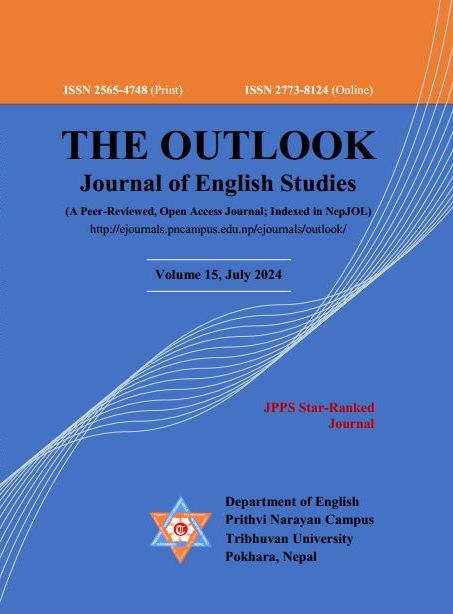Colonial Narrative and Woman-Nature Dynamics in Joseph Conrad’s Heart of Darkness: An Ecofeminist Critique
DOI:
https://doi.org/10.3126/ojes.v15i1.67765Keywords:
Colonial narrative, women-nature dynamics, ecofeminism, objectificationAbstract
The paper analyzes the novella Heart of Darkness written by Joseph Conrad, exploring the dynamics of woman-nature intersections. The portrayal of women is characterized by a lack of agency to speak, which is aligned with the inert objectification of nature. The implication behind such (mis)representation of women and the environment by colonial narrative is to show the masculine imperial discourse as the powerful one. Together, two colonizing ideologies operate in order to domesticate both women and nature. This paper claims that ecofeminist reading of the novel challenges such domestication, exposing the nuances through the frame narrative technique and covert resistance exhibited by nature and women. The shared resemblance between woman-nature dynamics further stresses the interrelation of freedom for both. The study implies that freedom of women and the environment is interlinked. The study is qualitative and employs the textual analysis as a research tool to draw a conclusion. This paper uncovers the parallels between the treatment of gender and nature by oppressive Western colonial model, which exercises masculine dominance to locate the dynamics of women-nature intersections.
Downloads
Downloads
Published
How to Cite
Issue
Section
License

This work is licensed under a Creative Commons Attribution-NonCommercial 4.0 International License.
This license enables reusers to distribute, remix, adapt, and build upon the material in any medium or format for noncommercial purposes only, and only so long as attribution is given to the creator.

